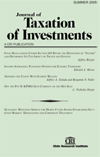Estate Planning for the Second Marriage (or Third, or Fourth)
Author: Dan C. Peare.; Hugh W. Gill.
Source: Volume 24, Number 04, Summer 2007 , pp.300-322(23)

< previous article |next article > |return to table of contents
Abstract:
Over 50% of all first marriages in the United States end in divorce. Second marriages have an even higher divorce rate. For those marriages ending with the death of a spouse, the surviving spouse often remarries. As a result, a professional advisor may be asked to assist a client to prepare an estate plan in a second, or even third or fourth, marriage situation. Add to this the fact that a surviving spouse may live to age 100 or beyond, and the problems are obvious. These situations involve special considerations, in addition to the usual estate planning issues that a nuclear family faces, particularly if either party has children from a prior marriage Conventional estate planning is based on the assumption that each spouse shares common descendants. If a mistake is made in the estate plan of the first spouse to die, the surviving spouse can often correct it to the satisfaction of their shared children. Where this is not the case, a careful balancing of the actual and perceived needs of each of the spouses and their separate families is critical.Keywords:
Affiliations:
1: Hinkle Elkouri Law Firm L.L.C; 2: Hinkle Elkouri Law Firm L.L.C.